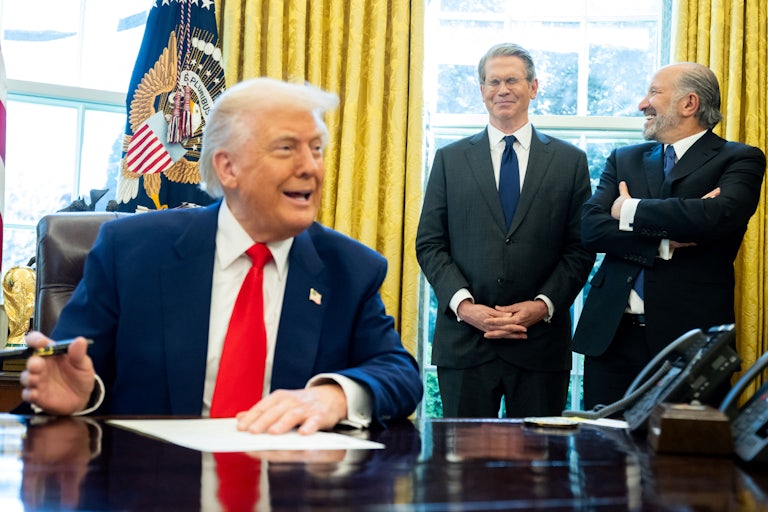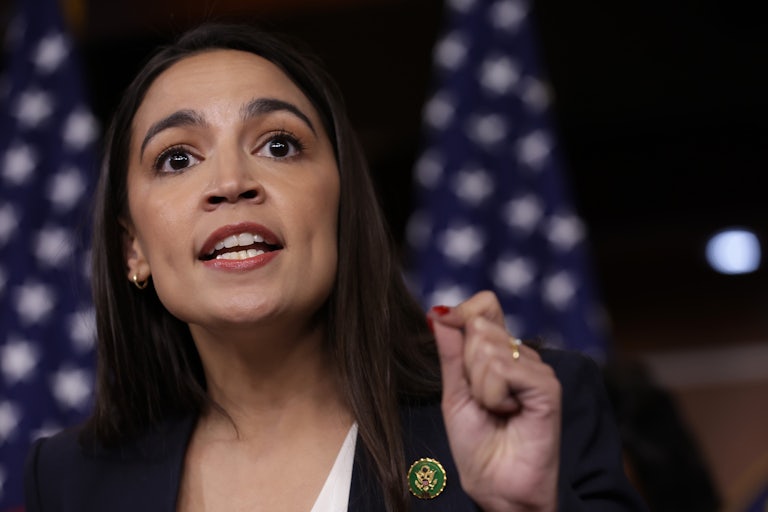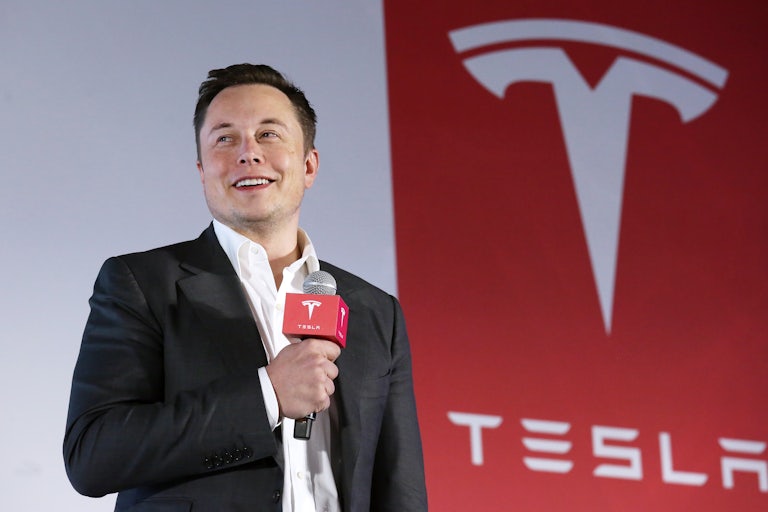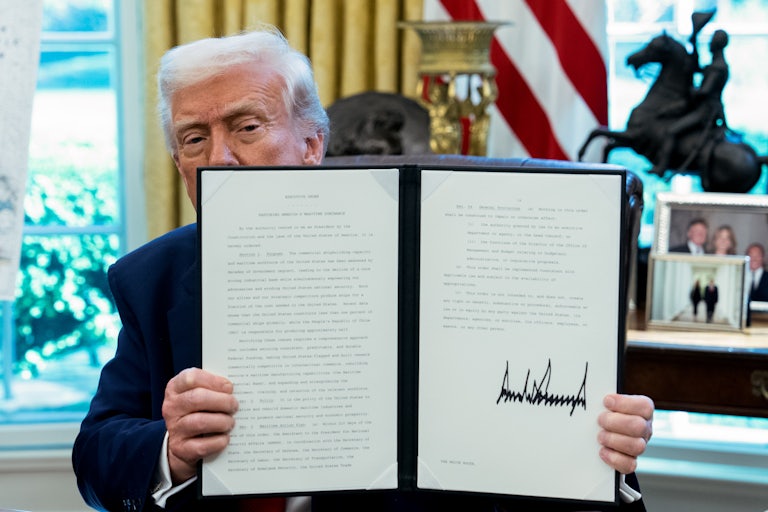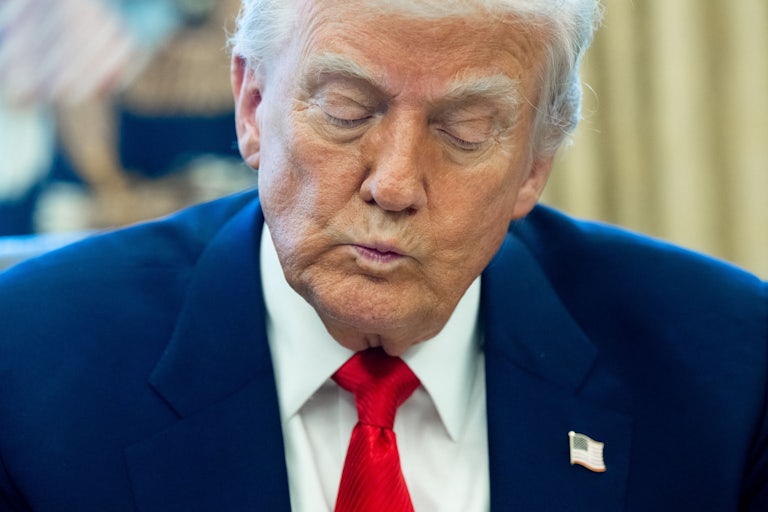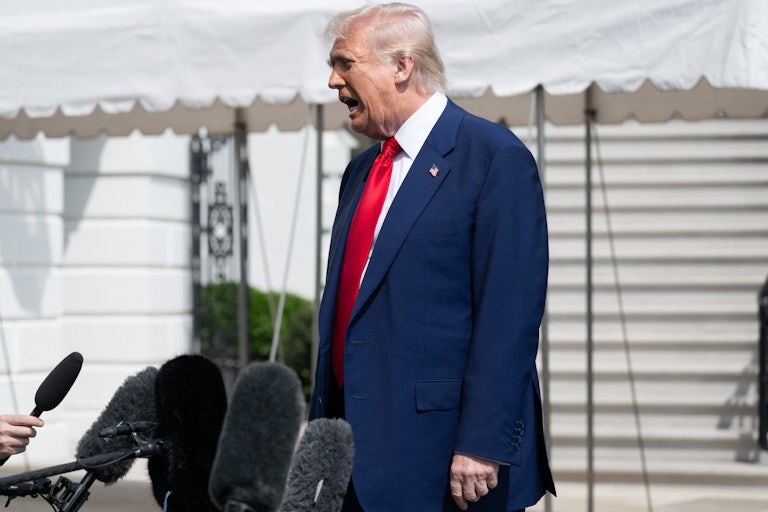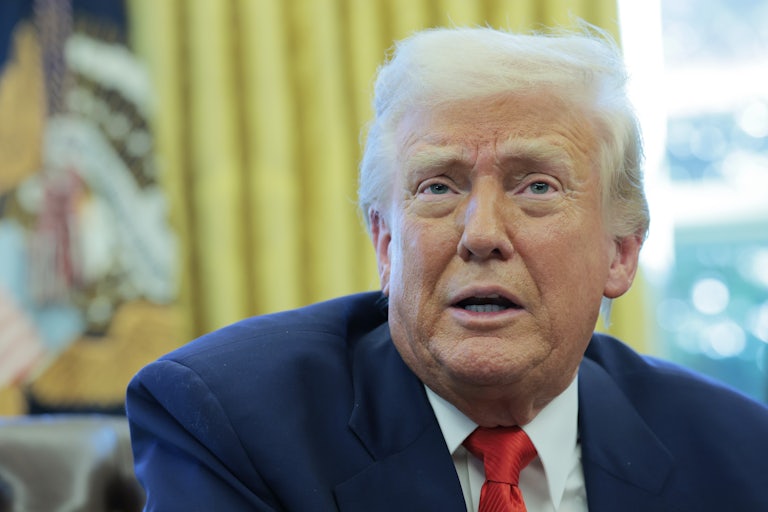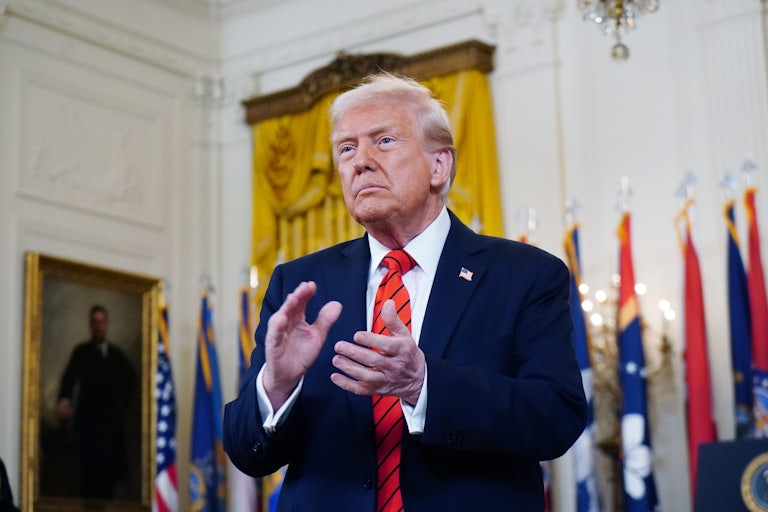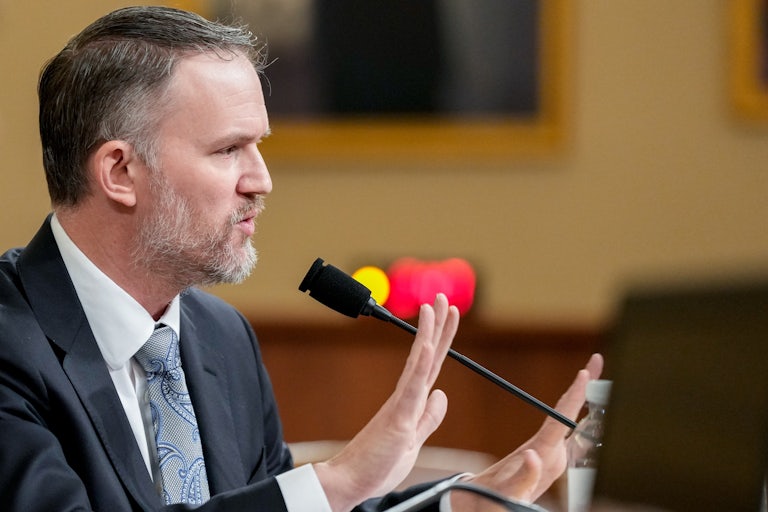Trump Can’t Stave Off Recession Even After Chickening Out on Tariffs
Analysts are not thrilled with the outlook for the U.S. economy.
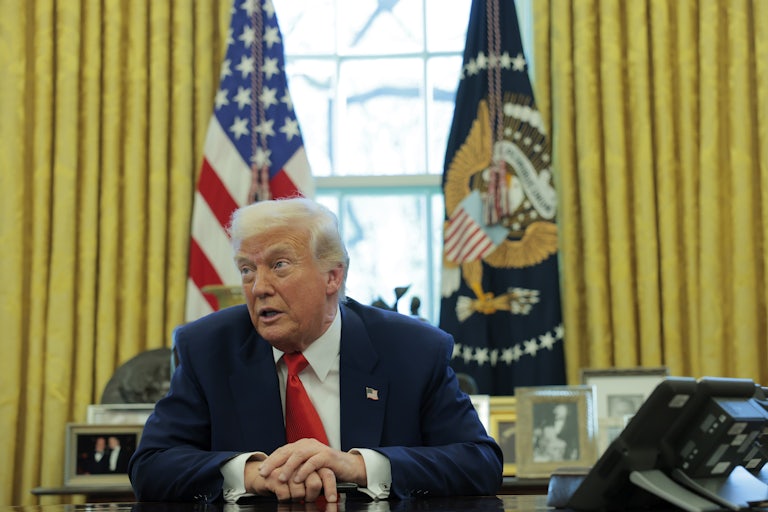
Donald Trump may have reversed course on tariffs, but that doesn’t mean the economy has reversed course away from a recession.
Some of the country’s largest investment firms—including JP Morgan and MetLife—are still warning their clients that the country is on the verge of a recession, despite the seemingly temporary market frenzy sparked by Trump’s decision to cave on his trade war.
JP Morgan said Wednesday evening that it wouldn’t change its economic forecast, predicting a 60 percent chance of a recession both at home and around the world. Goldman Sachs said that the odds of entering an economic downturn had been slightly buoyed by Trump’s news, but the odds were still elevated at around 45 percent.
“My sense here is that the economy is still likely to fall into recession, given the level of simultaneous shocks that it’s absorbed,” Joe Brusuelas, chief economist of consulting firm RSM, told CNN. “All this does is postpone temporarily what will likely be a series of punitive import taxes put on U.S. trade allies.”
Before Trump announced the 90-day tariff pause (except those placed on China) on Wednesday, MetLife released a note indicating to its investors that Trump’s policies had done permanent damage to the American market.
“Even if there is a near-term resolution of the tariff and other trade issues, damage has been done to the economy and to consumer expectations,” the note reads. “It is also unlikely that markets will rebound fully meaning that for the large cohort of workers approaching retirement and for those workers striving toward home ownership, the boost in the savings rate prompted by this volatility may be sustained. “
Meanwhile, Trump is continuing to stoke tensions with China. After volleying with the foreign economic powerhouse over reciprocal tariffs for the bulk of Wednesday, Trump revealed yet another levy hike, bringing the total tariff on China to 145 percent. That was composed of a 20 percent fentanyl tariff—which the White House has claimed is effectively punishment for contributing to a domestic fentanyl crisis—tacked onto a 125 percent reciprocal tariff. Unfortunately for American wallets, that once again sent stocks tumbling.
Volatility in the bond market—which has traditionally served as an investment safe haven during the market’s rough waters—has also sparked fears that Americans no longer see the U.S. government as a stable, long-term investment.
